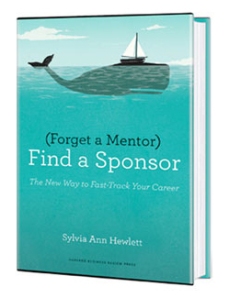By Michelle Schriver
My goal was to establish myself as a freelance editor. But in my darkest moments, I questioned whether that goal was a realistic one. I had completed Ryerson’s certificate in publishing, but with no in-house experience—or paid editorial experience of any kind—how would I win contracts?
In desperation, I found myself applying for posted jobs—exactly what job experts say not to do. Instead, experts say, you must identify what you want and go after it.
I didn’t listen.
I continued to apply for posted jobs, receiving little interest from potential employers. I felt lost—and like a loser.
EAC’s mentorship program came to the rescue—and BoldFace, too, because that’s where a post by freelance editor and writer Jennifer D. Foster came to my attention. If you’re a regular BoldFace reader, then you’re familiar with Jennifer’s byline, as she writes and edits her fair share of posts (and recently joined the Toronto branch’s executive committee as the seminars vice-chair). Her post profiling a coffee shop in my neighbourhood caught my eye, so I googled her. When I learned she lives close to me, I emailed her, offering to buy her coffee at the shop she blogged about.
She responded right away, saying she was willing to meet. At the appointed time, I waited for Jennifer at the coffee shop, feeling every bit the online stalker. Thanks to the Internet, I knew Jennifer’s educational background, work experience, and family status. I even knew her dog’s name.
I’ve come to know Jennifer as a generous mentor, offering her time and tips tailored to my particular situation. At that first meeting, she gave me ideas on where to hang my virtual shingle, how to handle business transactions, how to treat clients, and where to network. She informed me that she was an EAC mentor, and she suggested we continue our relationship officially as mentor-mentee.
Over the next several weeks and months, we met in person and frequently emailed one another to discuss my professional concerns:
- She critiqued my resumé and online presence.
- She invited me to join a networking group.
- She offered me tips on available workshops and helpful books.
- She acted as the swift kick in the butt I needed to build a website.
- She generously answered all my questions. (How do you query potential clients? What should I charge? Do I need invoicing software? Should I ask clients for feedback? Should I tag headlines when editing? Would she look, yet again, at my revised resumé?)
Jennifer’s help went further than mentorship, however. In fact, I would argue that my EAC mentor had a hidden agenda: Jennifer crossed the line from mentor to sponsor.
Let me explain.
 According to Sylvia Ann Hewlett, author of Forget a Mentor, Find a Sponsor (2013), mentors and sponsors both provide advice, guidance, and feedback, but sponsors offer more. Sponsors go out on a limb for you, and they advocate for you with clients.
According to Sylvia Ann Hewlett, author of Forget a Mentor, Find a Sponsor (2013), mentors and sponsors both provide advice, guidance, and feedback, but sponsors offer more. Sponsors go out on a limb for you, and they advocate for you with clients.
Jennifer acted as my sponsor when she referred a client to me whom she was too busy to take on. My first paying client! I was ecstatic, and I was ready.
I loved the project, and I loved making the client happy. But I was acutely aware that I wanted to do a good job not only for the client, but for Jennifer, too. By putting my name forward, her reputation was on the line.
And that’s how sponsorship works—it’s a two-way street. As Hewlett points out, recipients of sponsorship have responsibilities:
- to be loyal (by being the eyes and ears of your sponsor, letting her know what goes on in the trenches, so to speak)
- to promote the sponsor’s brand (by, say, always meeting deadlines—a prominent value on Jennifer’s website—or by “liking” your sponsor’s online posts)
- to offer value to the sponsor (by keeping an eye out for leads that make a good fit with your sponsor’s expertise, for example)
- and, advises Hewlett, to keep your sponsor abreast of your career (“your wins, losses, triumphs, and struggles”) so that your sponsor can help or intervene, if need be
Let me come clean: Jennifer didn’t set out to be my sponsor; there wasn’t a hidden agenda at work here, after all. EAC mentors certainly aren’t expected to find work for mentees (download the EAC Mentorship Guide for more details).
Rather, my “sponsorship” was a result of the common generosity found among freelancers—editors, writers, and others—who band together to network and pursue contracts. Seasoned professionals are often generous with their time, wisdom, and, sometimes, referrals. Newbies like me benefit from their guidance, and we’ll be sure to pay that kindness forward once we have experience. In the meantime, the seasoned pros can be sure we won’t forget what they’ve done for us.
And that brings me to my call for action: if you’ve received mentorship or sponsorship, how have you shown your thanks or your loyalty? What can you do today for your mentor or sponsor? How are you an active participant in this community?
The EAC mentorship program and my mentor were instrumental in launching my editing career. My first contract gave me the edge I needed to approach prospective clients with confidence. I have my second client now, and I know I’m on my way.
But more importantly, through the mentorship program I discovered that freelancing is not only possible, it’s a bona fide way of creating a career through hard work, motivation, persistence, and—the missing link I’m grateful to have discovered—community.
Michelle Schriver is a Toronto-based editor and writer who aspires to be a mentor rock star someday—like a certain someone she knows.
This article was copy edited by Alanna Brousseau.

Michelle, it’s so lovely to read this blog about your wonderful and generous mentor and sponsor, and about the Toronto branch mentorship program. There are many similar success stories, and I would encourage anyone interested in being a mentor or mentee in the program to contact the branch mentorship committee, and offer to be a mentor or ask to be a mentee. Full disclosure: I am one of the members of the mentorship committee, and someone who truly enjoys mentoring, be it formal, through the program, or informally with new editorial professionals who contact me privately.
LikeLike